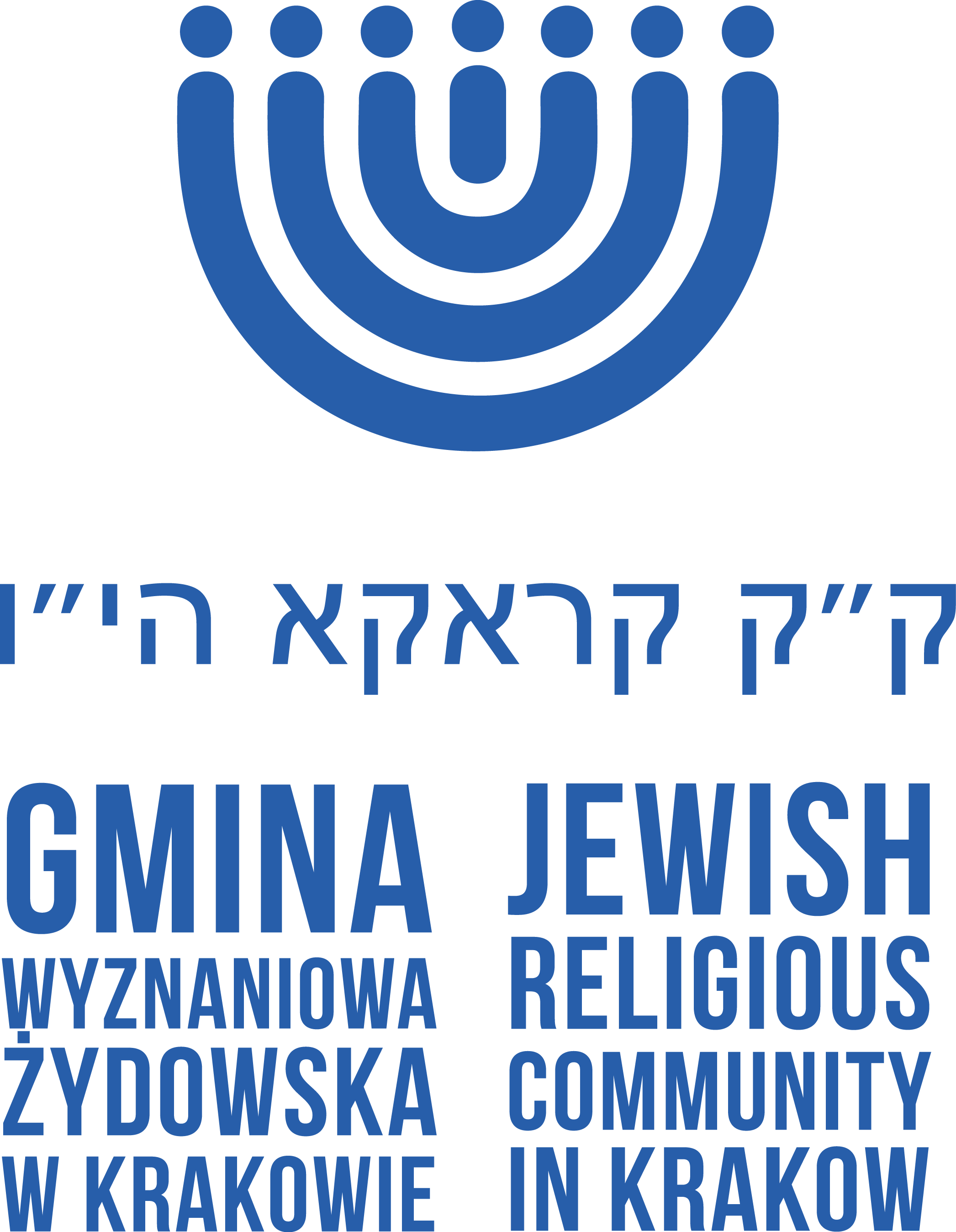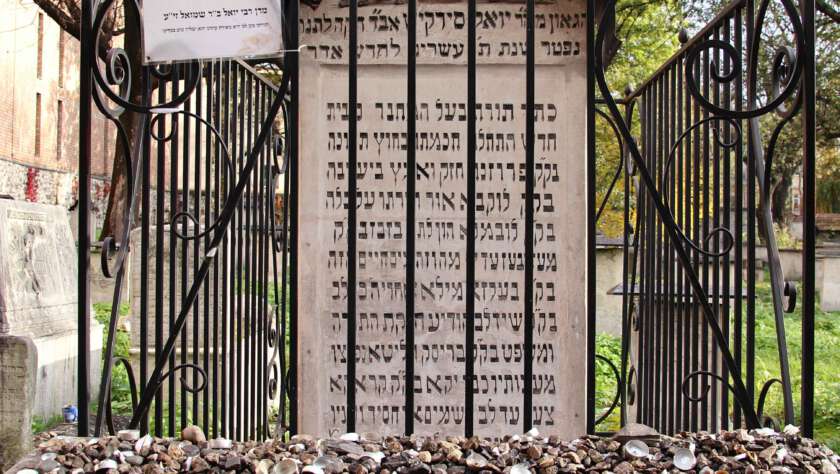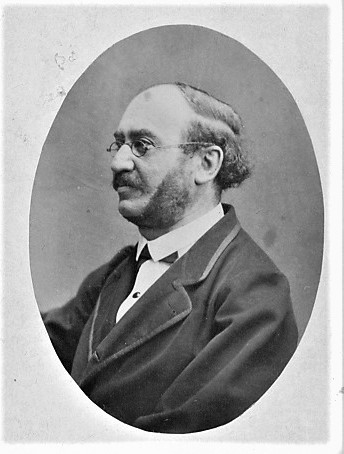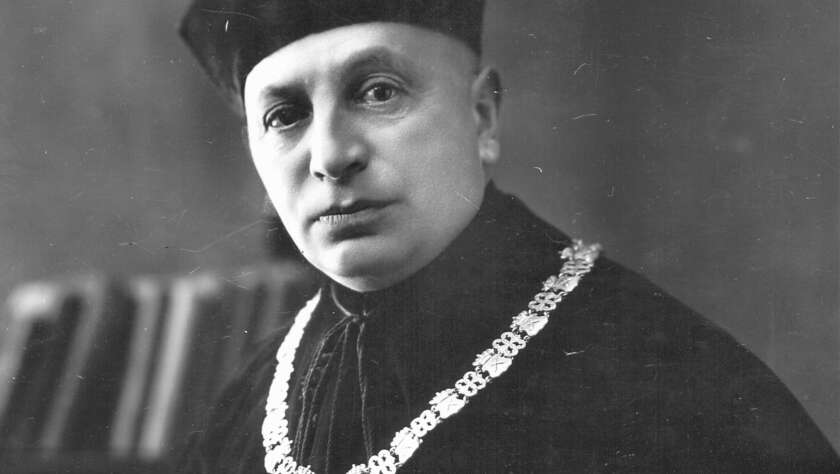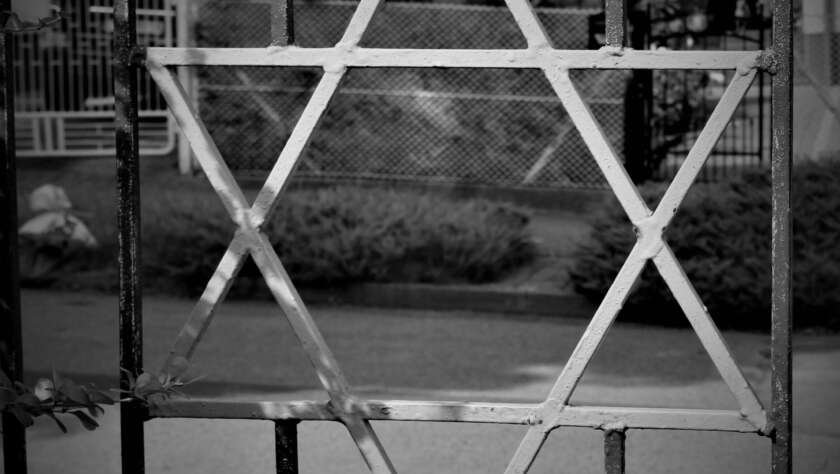Born in Nowy Sącz on 31st May 1897, Zofia Ameisenowa, daughter of Maurycy and Jadwiga, née Jachet, was a professor of History of Art at the Jagiellonian University in Krakow and a custodian of the Jagiellonian Library. In 1915, she began studying at the Faculty of Philosophy of the Jagiellonian University where she studied History of Art and Archaeology. After graduation, she started working at the Jagiellonian Library, dealing with graphic collections and the problems of Jewish iconography of the Old Testament. At that time, she was already one of the leading researchers of the history of the Middle Ages. After the war broke out, she left for Lviv, followed by Łuck and Kosow where she ended up in the ghetto. Together with her husband, she managed…
Today we remember Joel Sirkes, known as BaCH, son of Samuel Jaffe (SEGAL), who lived between 1564-1640, the rabbi of Krakow (1618-1640). Joel Sirkes was an outstanding Talmudist, an expert on halacha, a rabbi of the Jewish community in Kraków’s Kazimierz and rector of the Krakow yeshiva. Sirkes was known as Bach, a nickname which derived from the acronym formed from the title of his most famous work, Beit-Hadash (Krakow, 1639), which is a commentary on Jacob ben Asher’s code of Talmudic law, Arba Turim. As a student and then a rabbi, he was associated with many cities of the Republic of Poland, such as: Poznań, Brześć, Prużany, Łuków, Luboml, Międzyboże, Bełz, Szydłów, Brześć Litewski, only to finally settle down in Krakow. He participated in conventions of…
Born on 7th May 1818 in Tarnów, Józef Oettinger was a doctor, historian of medicine as well as the first professor of the Jagiellonian University of Jewish descent. At the early age of 5, he lost both of his parents. He was then taken care of by his uncle, Jakub Adler – a Krakow merchant who lived in Krakow’s Kazimierz. After graduating from gymnasium, he enrolled at the Faculty of Philosophy of the Jagiellonian University, only to change the faculty and begin studying medicine two years later. In 1843, he obtained the degree of doctor of medicine and started working in the Jewish hospital in Krakow a year later. During the “Springtime of Nations” he became a member of the National Committee established by patriots, representing the…
Born on 6th May 1881 in Przemyśl, Rafał Taubenschlag, son of Bernard Baruch and Cecylia Cyrl, nee Goldhart, was a legal historian who specialised in Roman law and papyrology. Professor at the Jagiellonian University and the University of Warsaw, corresponding member of the Polish Academy of Arts and Sciences. Between 1942-1947, Rafał Taubenschalg worked as a Visiting Research Professor of Ancient Civilization at Columbia University and was the creator of The Journal of Juristic Papyrology. In 1949, he was awarded the Barczewski award by the Polish Academy of Arts and Sciences, followed by an honorary doctorate from the University of Warsaw a year later. In 1955, during the International Congress of Papyrologists in Vienna, he was elected its honorary chairman by acclamation. The academic community celebrated professor’s…
A group of thugs connected with a Partisian Grouping called ”Błyskawica”, led by Józef Kuraś (alias ”Ogień”), opened fire on Jewish civilians who were trying to cross the border, killing several of them. This incident took place on 2nd May 1946 near Krościenko. „Brochures distributed by ”Ogień” across the Podahale region always included the same element – comparing the Jewish community to the communist regime”, a brochure issued in 2017 by the Krakow branch of the Institute of National Remembrance notes. As long as eliminating the Secret Police officers could be explained, the violence directed at regular people who were not linked to any political activities cannot be excused. During the negotiations with the Secret Police in 1946, Kuraś appealed for the expulsion of Jews from Podhale,…
